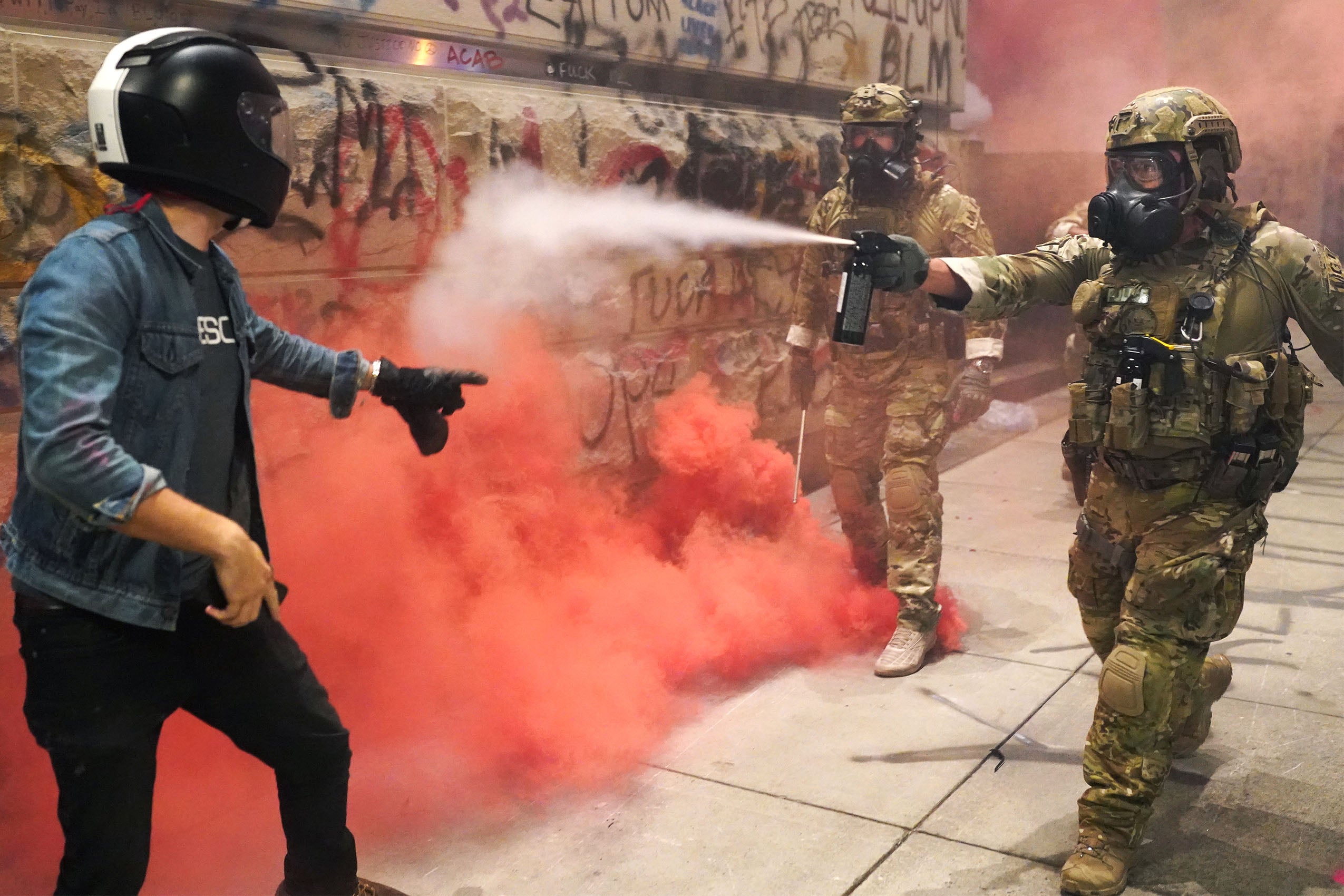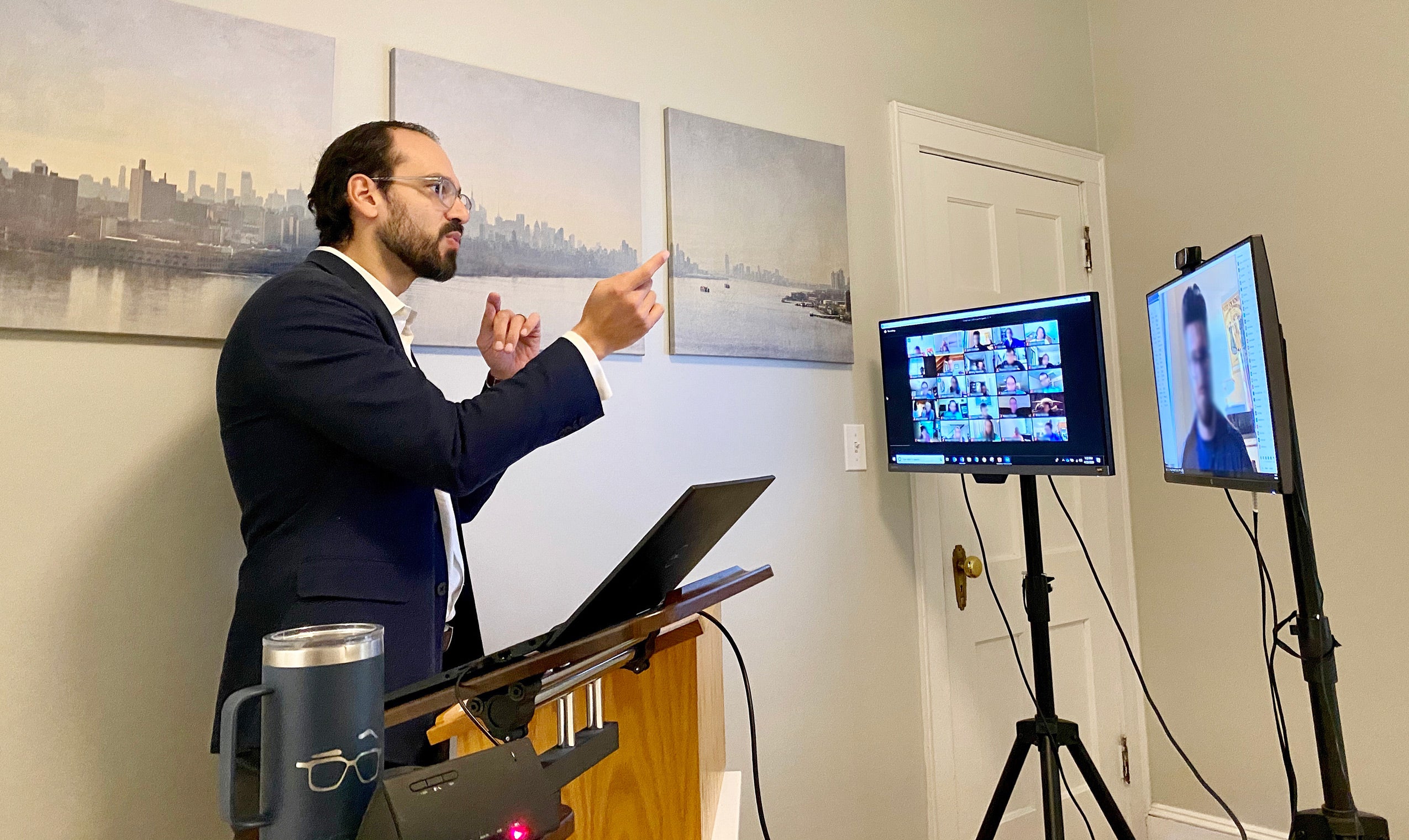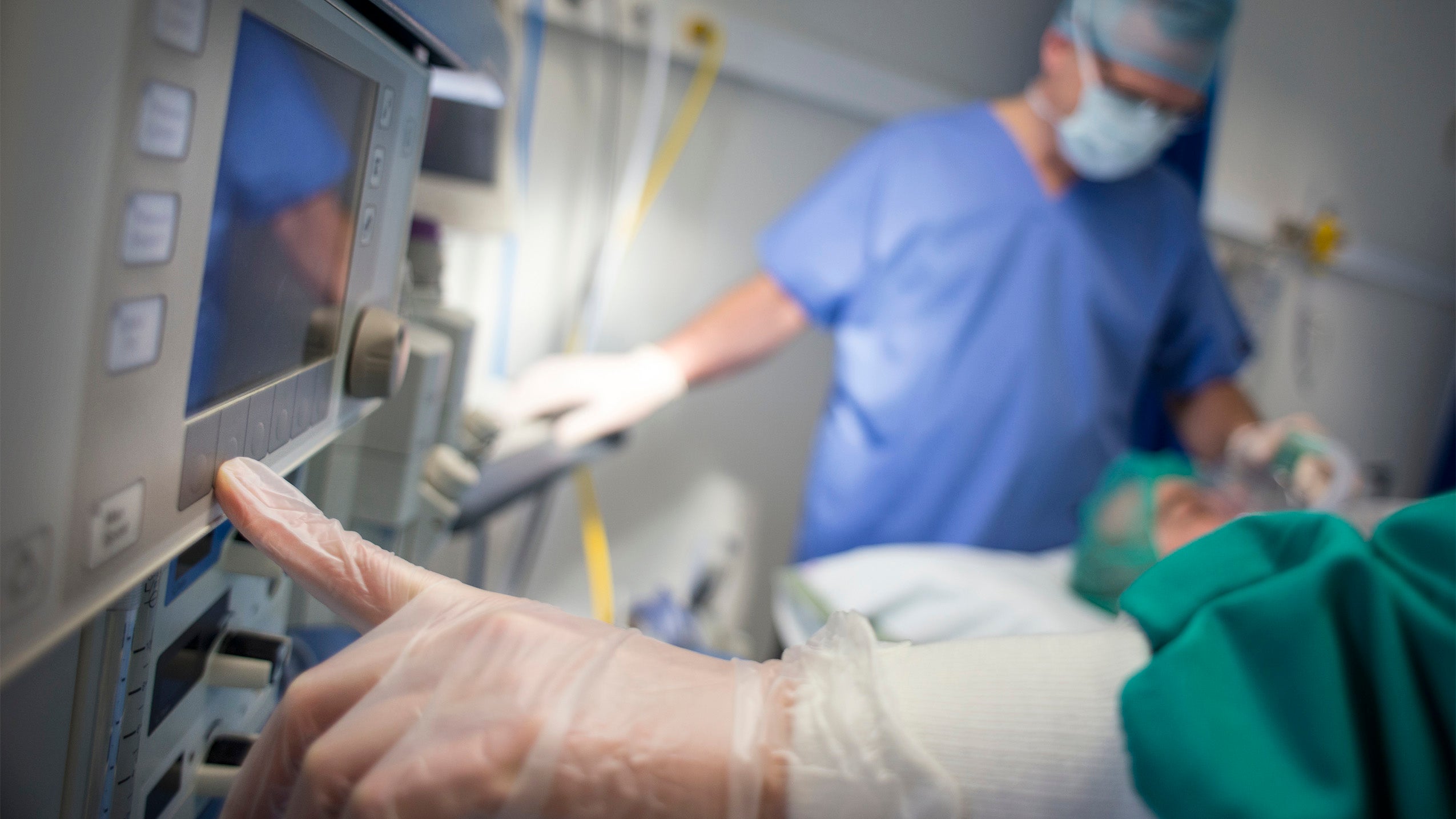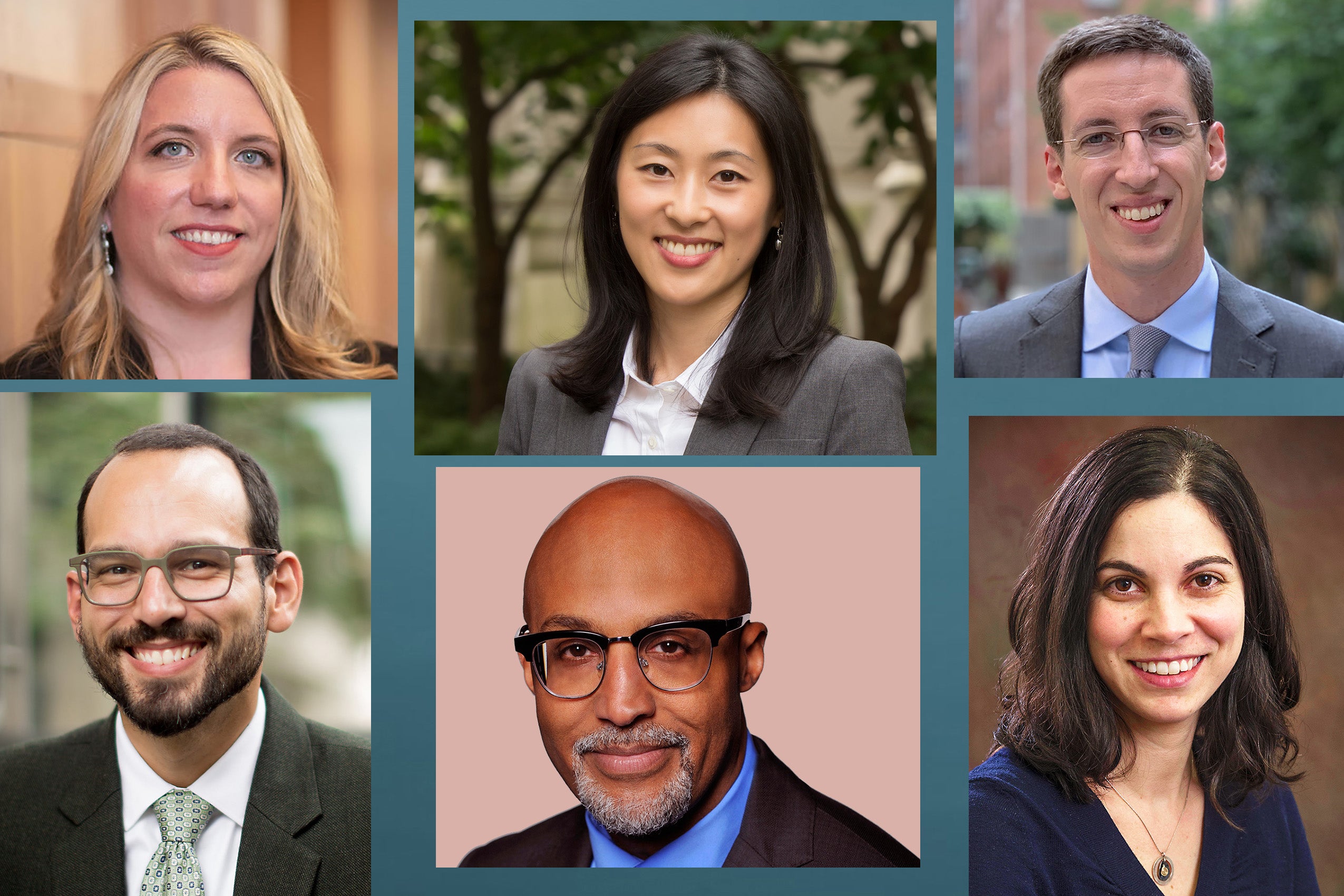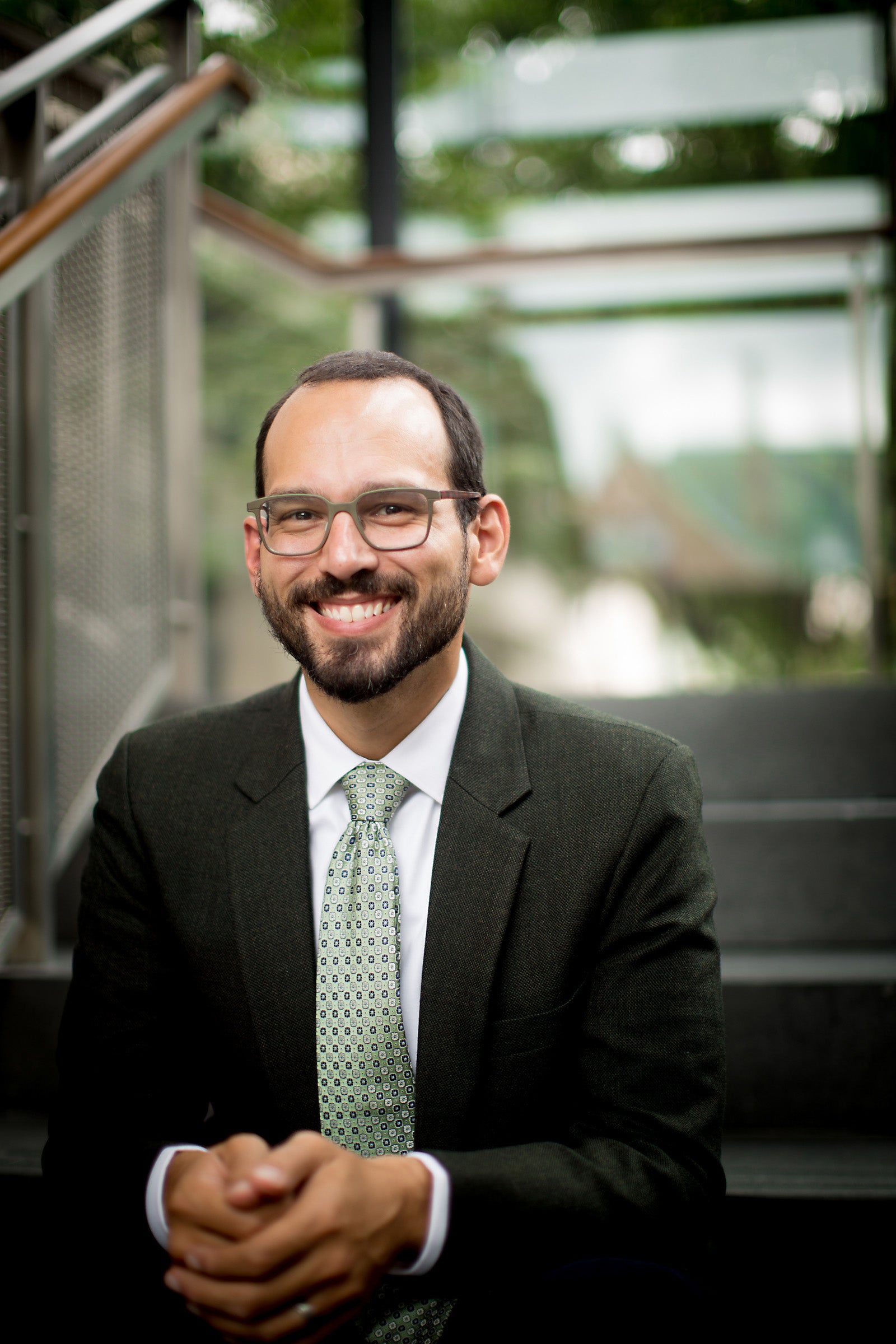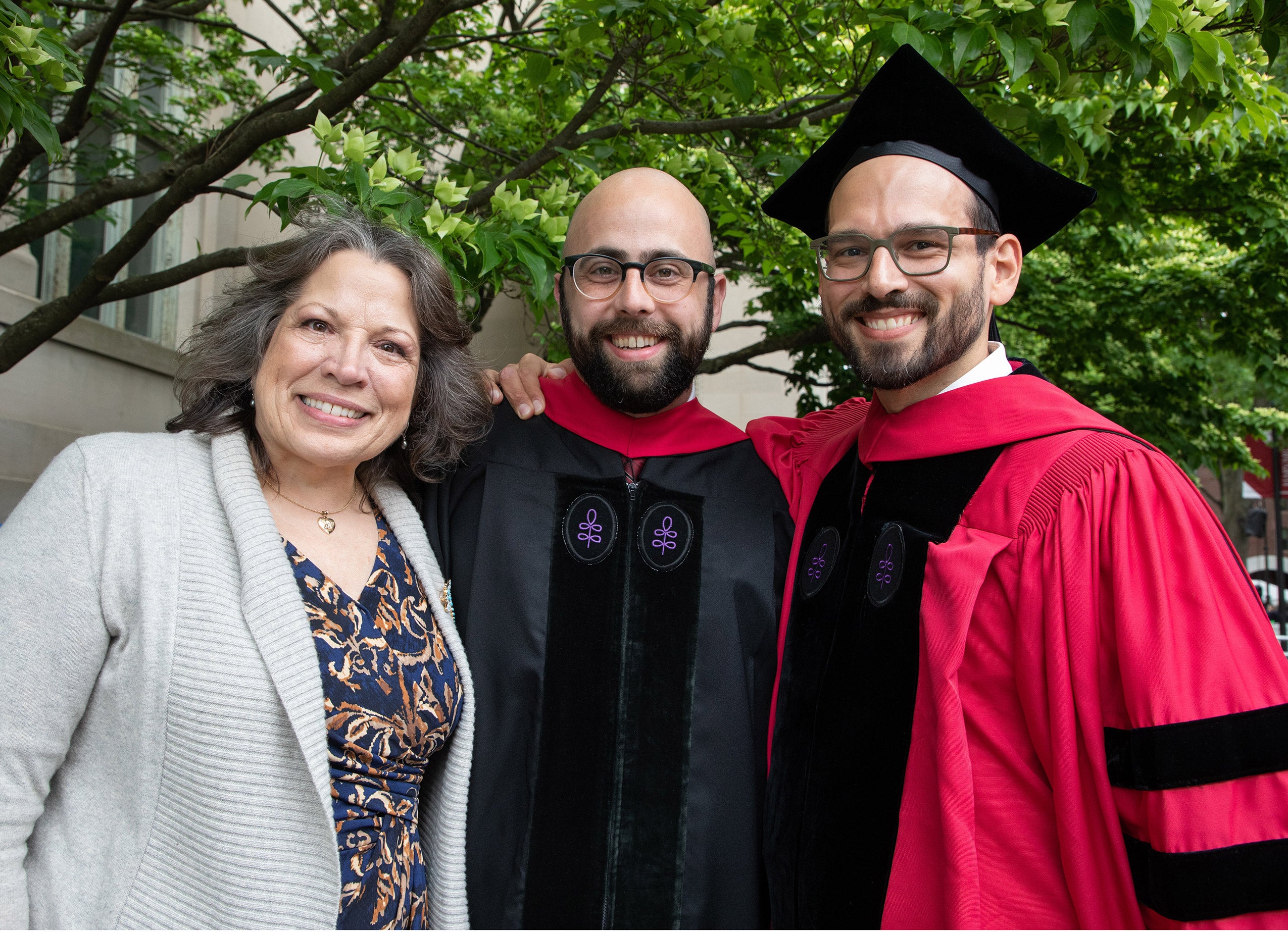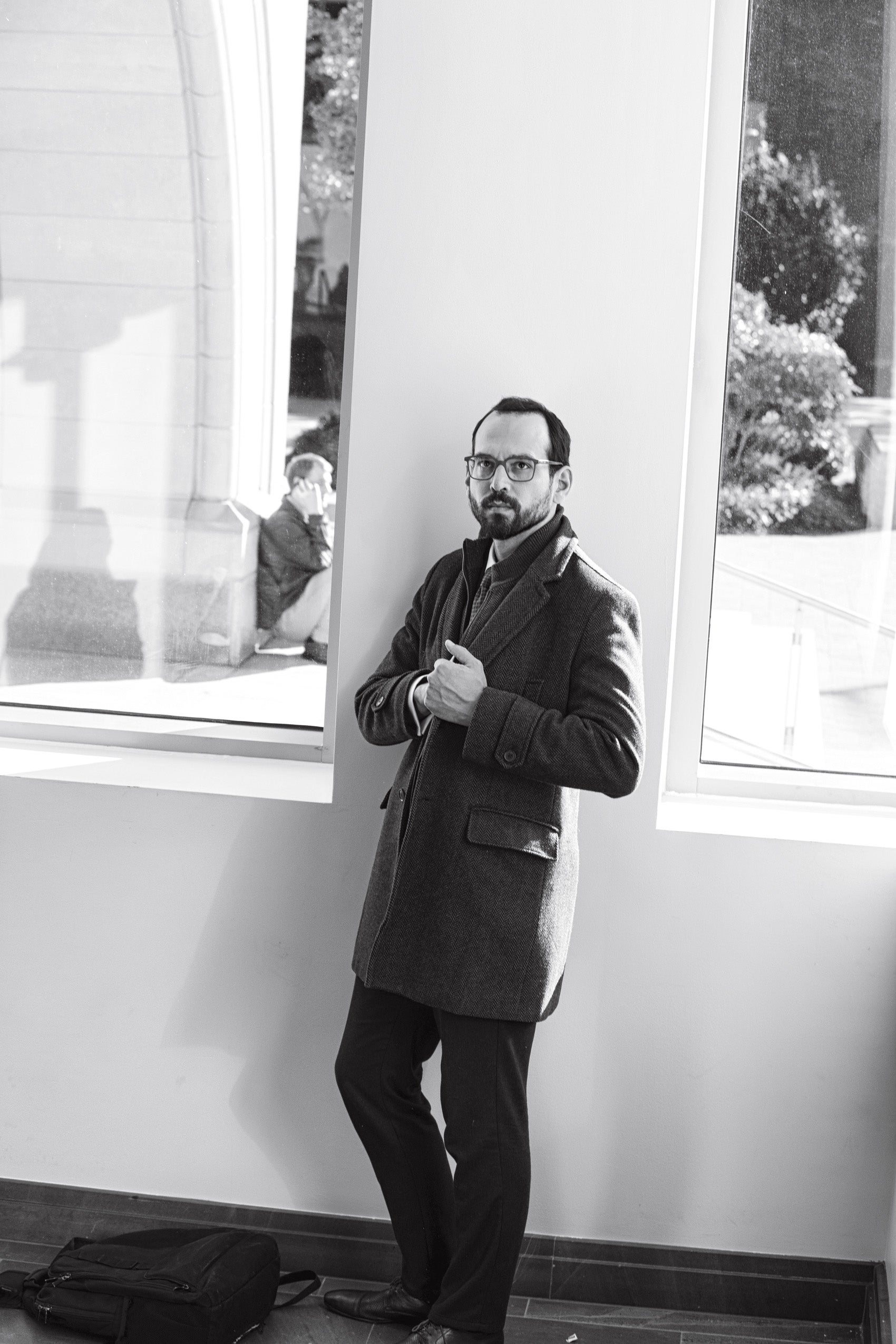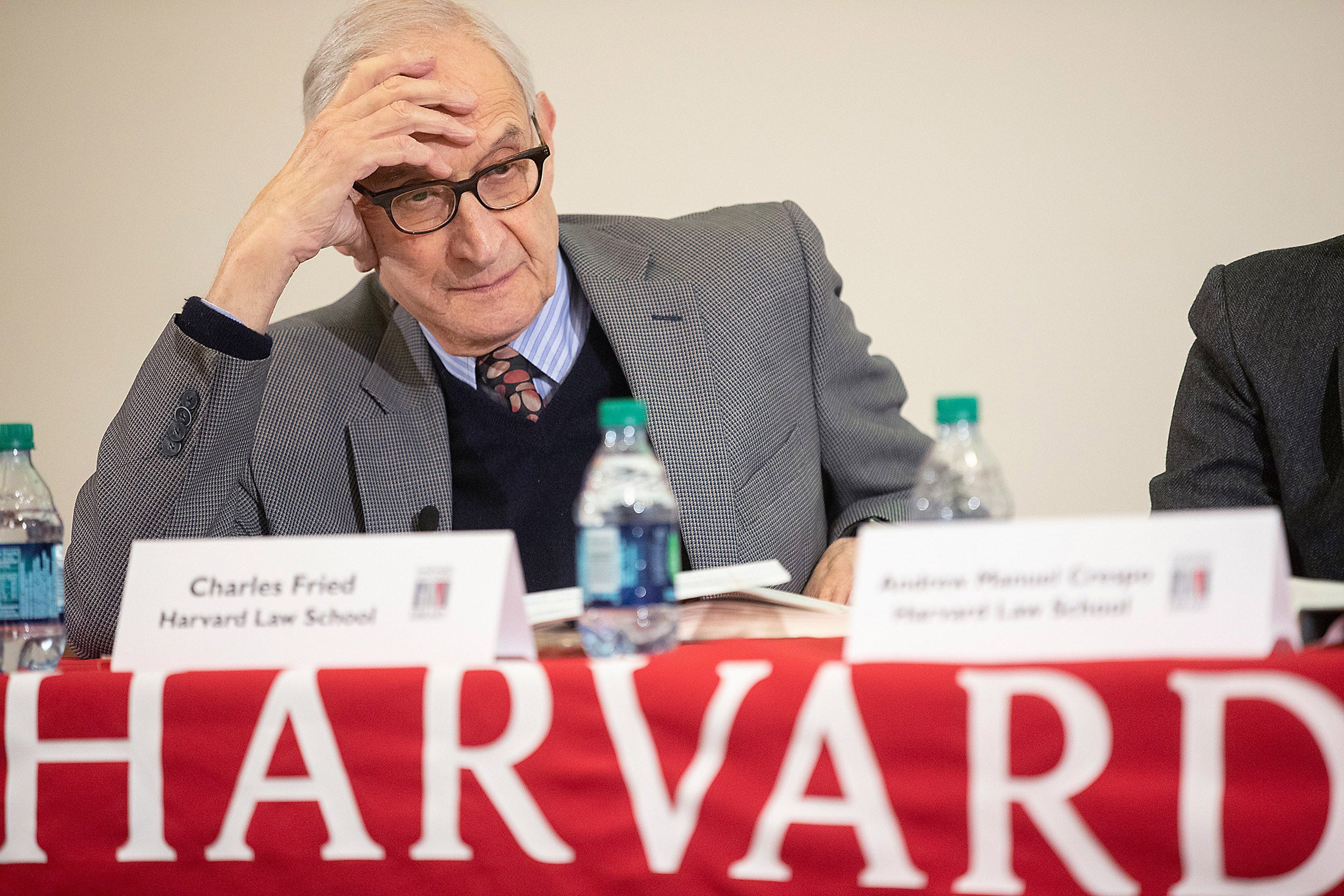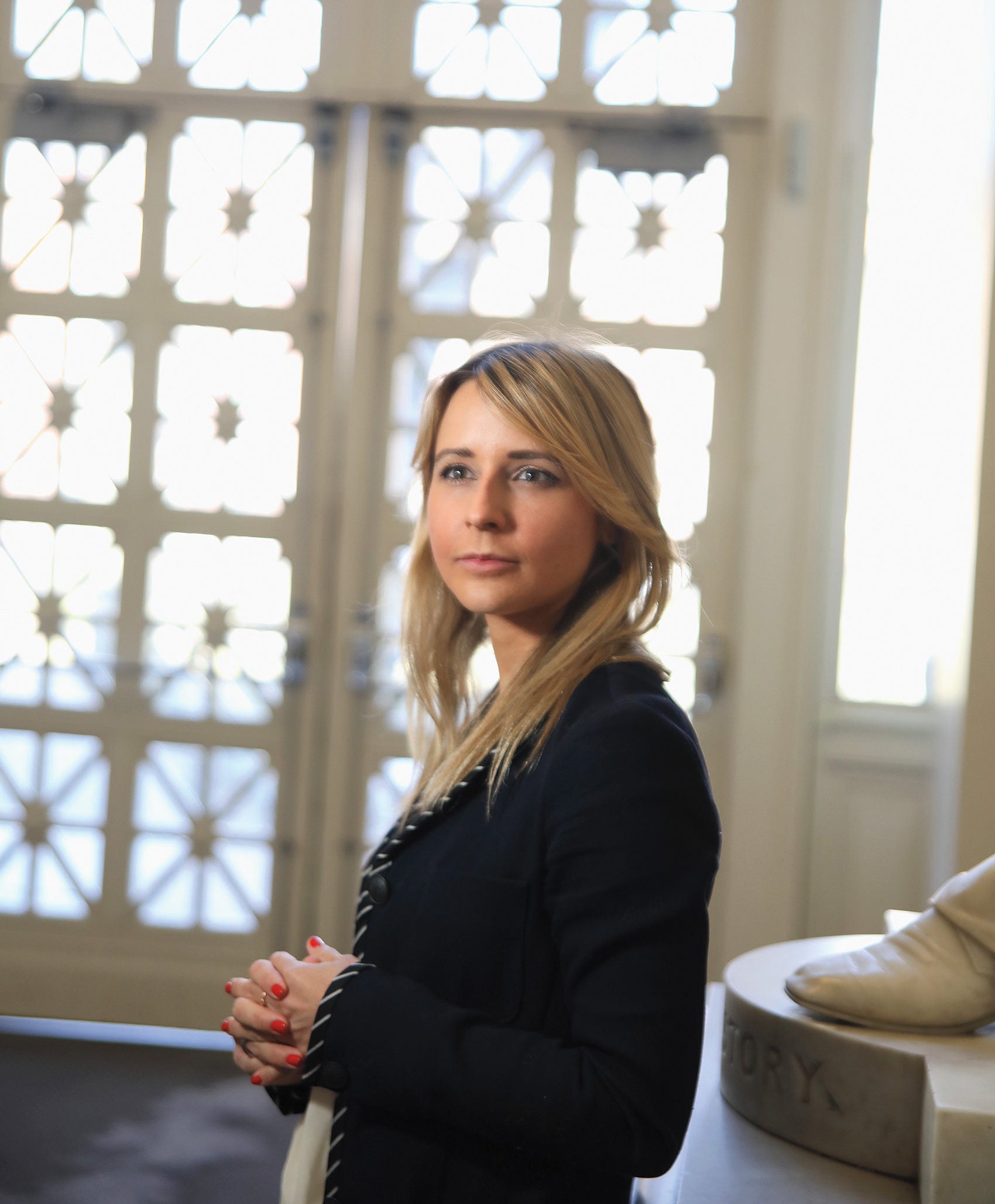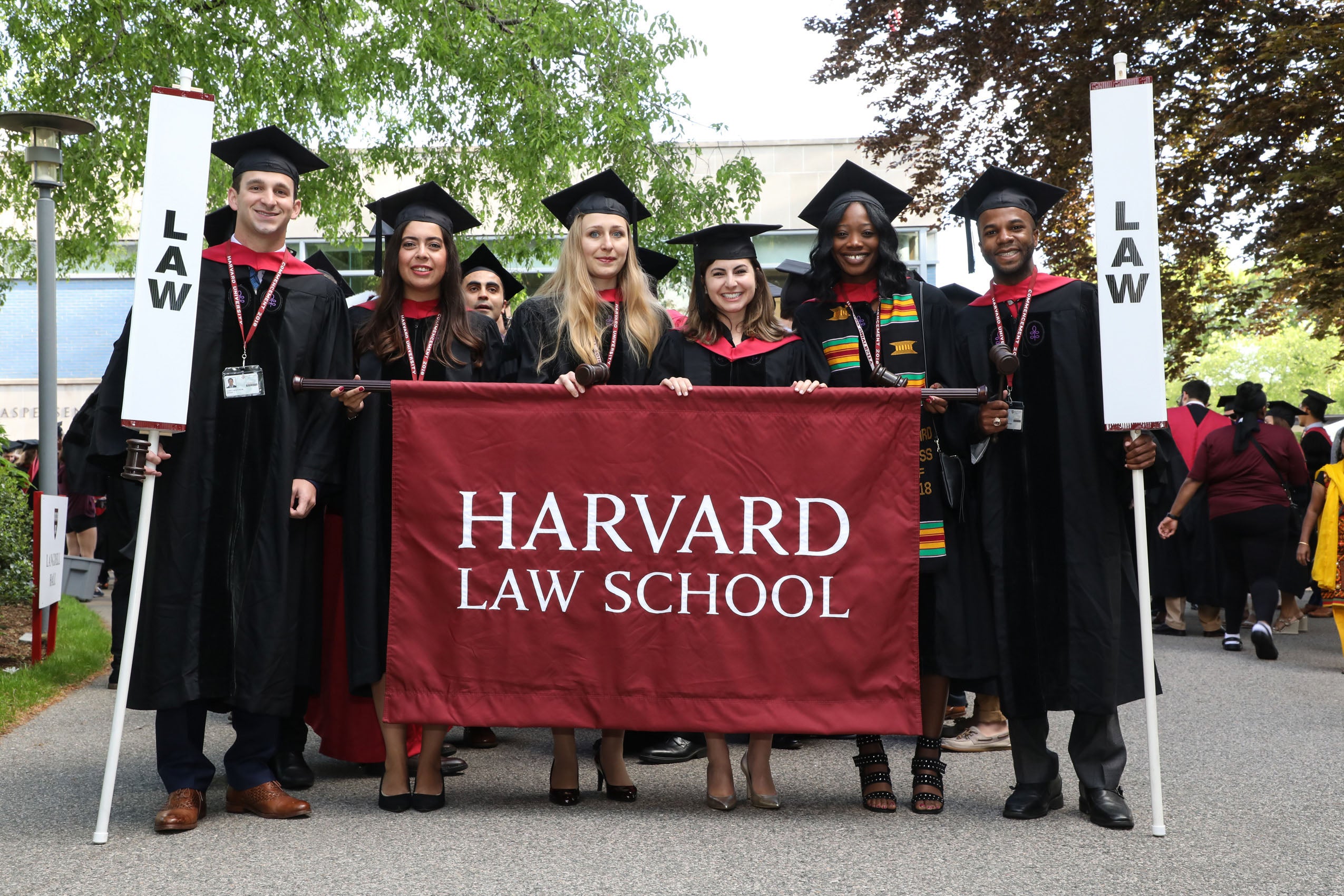People
Andrew Manuel Crespo
-
Two DHS Officials Apparently Just Admitted Their Troops Have Been Violating the Constitution
July 23, 2020
Acting Department of Homeland Security (DHS) Secretary Chad Wolf and one of his subordinates appear to have admitted their agents have been making unconstitutional arrests of Black Lives Matter protesters in Portland during a series of public appearances. Here’s the exact comment. “Anytime that you attack a federal facility such as a courthouse in Portland that is a federal crime,” Wolf told Fox News host Martha MacCallum on Tuesday night. “Attacking federal police officers–law enforcement officers–which they have done for 52 nights in a row is a federal crime. So, the Department, because we don’t have that local support, that local law enforcement support, we are having to go out and proactively arrest individuals and we need to do that because we need to hold them accountable.” Anticipatory arrests, of course, are prohibited under the U.S. Constitution...Harvard Law Professor Andrew Crespo summed up the constitutional issues with the Kline-Wolf approach. “I don’t know if shining a laser at someone is a federal crime,” he wrote. “It doesn’t matter. The police do not have probable cause to arrest you just because you are standing near someone else who may have committed a crime.” The U.S. Supreme Court, Crespo noted, weighed in on this issue in a landmark Fourth Amendment case from 1979. In Ybarra v. Illinois, a 6-3 majority of justices concluded that a state statute allowing police to search people on the premises of a location where a valid search warrant is executed violates both the Fourth Amendment’s prohibition against unlawful searches and seizures as well as the 14th Amendment’s guarantee of Due Process...Eventually, Cline said, the protester was released “because [DHS] did not have what they needed.” “Translation: They did not have probable cause,” Crespo stated.
-
Professor Crespo says events in Portland raise serious concerns about unlawful police tactics
July 21, 2020
Andrew Crespo ’08 recently discussed the federal government’s law enforcement actions in Portland, Oregon with Harvard Law Today.
-
The prosecution of Michael Flynn is not over yet
June 29, 2020
An article by Andrew Manuel Crespo and Kristy Parker: On Wednesday, two accounts of the Department of Justice — one grounded in fact, the other in fiction — were on display in the nation’s capital. The first occurred before the House Judiciary Committee, where Andrew Zelinksy, a career prosecutor currently working at the Justice Department, took the extraordinary step of testifying about political interference in criminal cases from “the highest levels of the Department,” namely by Attorney General William Barr. Zelinsky described career officials being overridden and departmental sentencing practices violated, all to give “a break” to President Trump’s close associate Roger Stone, who has been convicted of conduct that threatened our country’s national security. At virtually the same moment, a divided three-judge panel of the Court of Appeals for the D.C. Circuit, issued an opinion in the prosecution of former Trump national security adviser Michael Flynn. Barr intervened in that case to give a break to yet another close Trump associate, by filing a highly unusual motion to dismiss the case even though Flynn had already twice pleaded guilty. Under the governing federal rules, such a dismissal requires “leave of court,” and the judge overseeing Flynn’s case, Emmet Sullivan, was preparing to hold a hearing on the government’s request. But in an unprecedented move, the Appeals Court stepped in before Sullivan had even considered the government’s motion and ordered him to grant it.
-
A retired federal judge appointed to oppose the Justice Department’s bid to dismiss former national security adviser Michael Flynn’s guilty plea to lying to the FBI on Monday requested a hearing for oral arguments after he briefs the court. The request for a hearing sets the stage for a pitched legal and political battle triggered by Attorney General William P. Barr’s April 30 move to undo the conviction of the highest-ranking Trump adviser convicted in special counsel Robert S. Mueller III’s Russia investigation...In a 34-page friend-of-the-court brief organized by attorneys with the nonpartisan, nonprofit profit Protect Democracy and Harvard Law School professor Andrew Manuel Crespo, former prosecutors argued Supreme Court precedent gives Sullivan authority to undertake “a searching review” of Flynn’s case and to “protect the public interest in the evenhanded enforcement of our laws.” “Our democracy is safe only when the enormous power of federal law enforcement is applied equally to all citizens based on facts and the law, rather than the political whims of a particular president,” the group wrote. “President Trump and Attorney General Barr have flouted these principles by seeking to dismiss the prosecution of Michael Flynn for what appear to be partisan political reasons.”
-
An article by Andrew Crespo, Laura Londoño Pardo '21, Nathaniel Sobel '20, and Kristy Parker: In the wake of Attorney General William Barr’s unprecedented decision to drop the Department of Justice’s years-long prosecution of former Trump national security advisor Michael Flynn, many are asking: Is this the end of the case? Two recent orders issued by Judge Emmet Sullivan, the judge presiding over Flynn’s prosecution, make clear the answer is no...Given the unique circumstances of this case—including the nature of Flynn’s actions, the Justice Department’s remarkable reversal, and the facially implausible arguments the department has offered to support that reversal—Judge Sullivan’s obligation to conduct a thorough inquiry into the government’s decision is of the utmost importance. Assisted by Judge Gleeson, he should conduct an evidentiary hearing into the circumstances surrounding the government’s change of heart. And if that hearing confirms what the already available public record seems to show, Judge Sullivan should reject the government’s motion and proceed to exercise the judiciary’s core task at the end of every criminal case in which the defendant has already pleaded guilty: impose a sentence.
-
How can law students help in the midst of COVID-19?
April 29, 2020
Lee Mestre helped to coordinate Harvard Law School student aid efforts after natural disasters in New Orleans and Puerto Rico. Now she's using that experience to help law students support people in Massachusetts affected by the COVID-19 crisis.
-
Zooming in on faculty at home
April 29, 2020
With a little help from their at-home photographers, HLS professors share what teaching classes via Zoom looks like.
-
Emergency statutes must be passed to protect doctors and hospitals from potential lawsuits, say Harvard Law professors
April 7, 2020
HLS Professors Glenn Cohen and Andrew Crespo discuss their proposals to protect doctors and hospitals from potential lawsuits and criminal prosecution during the COVID-19 pandemic.
-
Protect the Doctors and Nurses Who Are Protecting Us
April 3, 2020
An article by I. Glenn Cohen, Andrew M. Crespo, and Douglas B. White: Our health care system is on the cusp of a crisis not seen before. A ventilator shortage is coming, if it’s not already here. Hospitals, physicians and nurses are likely to face a terrible choice: Should they withdraw or withhold ventilators from some patients so that others with better odds of survival might benefit from the machines? Doctors are used to discontinuing ventilator treatment if it doesn’t achieve a patient’s goals or is inconsistent with a patient’s wishes. But Covid-19 presents an altogether different issue: Denying some patients short-term ventilation, against their wishes, will probably cause them to die when they might have gone on to live long and healthy lives with the treatment. But it will also make limited numbers of ventilators available to other patients who are more likely to survive. Facing this dilemma, doctors and medical ethicists have designed model triage protocols that ration and reallocate scarce ventilators among patients, with a goal of saving the most lives. But some doctors, nurses and other health care professionals are already wondering whether following those protocols will put them at risk of being sued or even prosecuted.
-
A Proposal to Offset Prosecutors’ Power: The ‘Defender General’
January 27, 2020
Justice Elena Kagan calls it her hobbyhorse. Justice Sonia Sotomayor says it is a kind of malpractice. Criminal defense lawyers, they say, often fail to put aside ambition and vanity when their cases reach the Supreme Court. These lawyers, the justices say, should step aside and let Supreme Court specialists handle the arguments. “Case in and case out, the category of litigant who is not getting great representation at the Supreme Court are criminal defendants,” Justice Elena Kagan said at a Justice Department event in 2014...Making sure criminal defendants have consistently able lawyers at the Supreme Court would be a start. But a new article published in the University of Pennsylvania Law Review by Professors Daniel Epps of Washington University in St. Louis and William Ortman of Wayne State University says more is needed...The article builds on earlier work. A 2016 article in the Minnesota Law Review by Andrew Manuel Crespo, a law professor at Harvard, proposed a partial fix. It urged the justices to appoint expert lawyers to argue as friends of the court alongside the defendants’ own lawyers.
-
New this year for HLS faculty
September 12, 2019
With the start of the academic year, four new scholars have joined the ranks of the Harvard Law School faculty and two have been promoted to professor of law.
-
Andrew Manuel Crespo ’08 has been promoted to professor of law at Harvard Law School, effective July 1, 2019. Crespo, who joined the faculty as an assistant professor in 2015, is the first Latino to be promoted to a tenured position on the HLS faculty.
-
Unexpected Reunion
May 30, 2019
Most law school graduates look forward to seeing their mothers and favorite professors at their commencement ceremonies. Very few see their 4th grade teachers or the mothers of their professors cheering them on as they receive their diplomas. Michael Donohue is the exception.
-
Despite the years that have since passed, many of Elizabeth Warren’s former students at Harvard Law School share the same distinct memory: it was their very first day at the prestigious institution, and for many, their very first class. ...Years later, when clips of Warren grilling corporate CEOs and cabinet officials from the US Senate went viral, her former students would fire off emails and texts to one another joking about what it was like to be at the receiving end. “We could all empathize with the witness in the hot seat,” said Andrew Crespo, a former student of Warren’s who is an associate professor at Harvard. ... Her research in bankruptcy law – and the impact on the average person’s medical bills, mortgage payments and other installments – led Warren to become a leading expert on the subject and rise in the academia world. “These are the issues she still cares about,” said Charles Fried, a professor at Harvard Law School who helped recruit Warren to its faculty. “I think she is extraordinary for this reason, that she got into politics because she cared about some issues. ... “When we brought her to Harvard, no one had a clue that she thought of herself as Native American,” said Laurence Tribe, the school’s professor of constitutional law.“I think she’s had an unfair rap,” he added. “I don’t think it’s the case that she ever exploited her family’s background or ancestry in a way that some people seem to think she did.”
-
Andrew Manuel Crespo: Practice Meets Theory
January 29, 2019
As staff attorney with the Public Defender Service for the District of Columbia for more than three years, Assistant Professor Andrew Manuel Crespo '08 represented adults and juveniles charged with felonies ranging from armed robberies to homicides. Passionate about the work, he had no plans to become an academic. But early in his career, then-Dean Martha Minow engaged him in a life-changing conversation.
-
Sotomayor: Judges should pull together
November 15, 2018
U.S. Supreme Court Associate Justice Sonia Sotomayor made an impassioned plea Tuesday afternoon for “serious thinking” among judges to find ways to come together more often, and to fight the effects of partisan polarization. “For decades, the court has always managed to maintain the public’s respect, in large part because the public has perceived it as less partisan than other institutions,” Sotomayor said in a conversation with Andrew Crespo, assistant professor of law at Harvard Law School (HLS) before a room filled with law students...For Marvellous Iheukwumere, J.D. ’21, the talk was inspiring. “It was very stimulating, as a woman of color, to hear Justice Sotomayor,” said Iheukwumere. “It motivates me to keep focusing on my goals in the legal field.”
-
Judges and their toughest cases
October 31, 2018
“Tough Cases,” a new book in which 13 trial judges from criminal, civil, probate, and family courts write candid and poignant firsthand accounts of the trials they can’t forget, was the subject of a lively discussion at a panel sponsored by the Harvard Law School Library, which drew a packed house at Wasserstein Hall in October.
-
Judges and their toughest cases
October 22, 2018
...In the new book “Tough Cases,” 13 trial judges from criminal, civil, probate, and family courts wrote candid and poignant firsthand accounts of the trials they can’t forget, giving readers a rare glimpse into their chambers. The book was the subject of a lively discussion at a panel sponsored by the Harvard Law School Library...“I don’t think I had ever really heard judges speak or write publicly about their thought processes and their tough cases the way this book captures,” said Andrew Crespo ’05, J.D. ’08, an assistant professor of law at Harvard Law School (HLS) and one of the panelists...Charles Fried, the Beneficial Professor of Law, said trial judges bear a heavy burden, not only because their work is lonely but because they have to steer their way through all facets of the human condition...For retired judge and HLS lecturer Nancy Gertner, “Tough Cases” reveals the challenges judges face and the need for the public to learn about them.
-
Brett Kavanaugh, take a polygraph
October 2, 2018
An op-ed by Andrew Manuel Crespo. Two years ago, a federal court of appeals held that polygraph tests are “an important law enforcement tool” that can help investigators “test the credibility of witnesses” and “screen applicants” for “critical” government positions. The judge who wrote that opinion: Brett M. Kavanaugh. Last week, the Senate Judiciary Committee asked Kavanaugh whether he would be willing to take a polygraph test regarding the multiple sexual assault allegations he faces as he seeks a seat on the Supreme Court. Considering such a request himself, Kavanaugh departed from his prior judicial opinion and told the Senate that polygraphs are “not reliable.” But still, when pressed by Sen. Kamala D. Harris (D-Calif.) about taking one, Kavanaugh ultimately said, “I’ll do whatever the committee wants.”
-
On a Mission
June 26, 2018
After Hurricane Maria roared over Puerto Rico in September 2017, crippling the island where Natalie Trigo Reyes ’19 grew up and where much of her family still lives, she felt “completely overwhelmed.” Within days, however, she put together an event that raised about $40,000 for relief efforts, collected enough emergency goods to fill three large trucks, and joined Harvard Law Assistant Professor Andrew Manuel Crespo ’08 and Lee Branson Mestre of the Office of Clinical and Pro Bono Programs to plan the school’s response to the disaster.
-
Camera-ready: Harvard Law School Commencement 2018
May 25, 2018
On Thursday, May 25, the Harvard Law School Class of 2018 received their diplomas at a ceremony on Holmes Field, and celebrated their graduation with family, friends, and picture-perfect New England weather.
